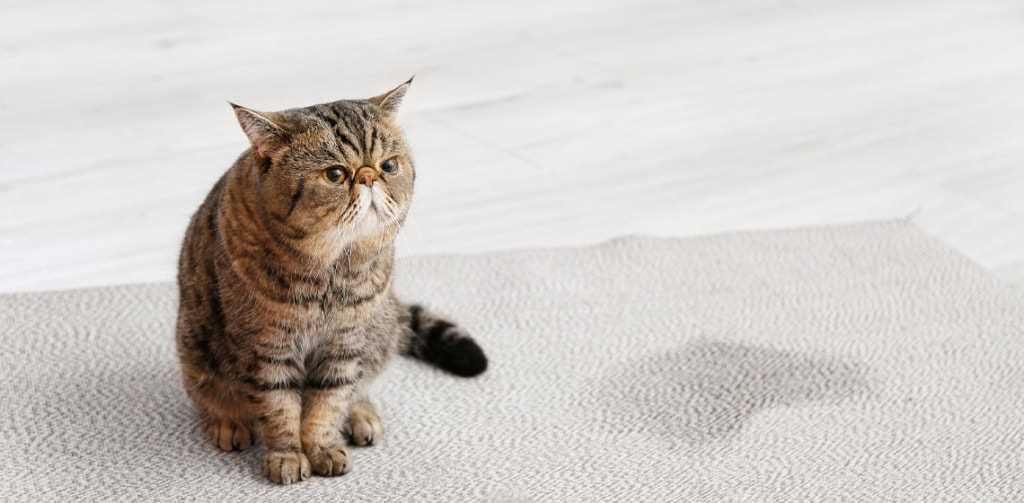



Mix equal parts white vinegar and water in a spray bottle. This simple solution neutralizes unwanted scents effectively. Spray the affected areas thoroughly, ensuring the mixture penetrates the soil. Allow it to sit for about 30 minutes before rinsing with clean water.
For persistent odors, try sprinkling baking soda over the area after applying the vinegar solution. Baking soda absorbs odors and leaves a fresh scent behind. Let it sit for several hours, then sweep or hose it off.
Enzymatic cleaners specifically designed for outdoor use can be a game changer. These products break down the compounds responsible for unpleasant odors. Apply according to the manufacturer’s instructions for best results.
Regularly maintaining your space helps prevent future issues. Keep the area clean by picking up any waste promptly and washing the surfaces with soap and water. Frequent inspections can help you catch problems early.
Identifying the Source of the Odor
First, sniff around the area to locate the exact spot. Follow your nose; it will lead you to the source. Keep an eye out for any signs, like discoloration on the ground or nearby plants.
Check for wet patches or dried stains. Sunlight can sometimes fade these marks, making them harder to spot. Use a flashlight during the evening for better visibility.
Consider areas where I might have frequently visited. These could include:
- Garden beds
- Pathways
- Fencing or walls
- Underneath bushes or trees
Look for any debris or grass that seems out of place. A thorough inspection can reveal hidden spots that need attention.
Also, be aware of the weather. Rain may wash away some traces, while dry conditions can intensify residual odors. Mark any suspect areas for later cleaning.
Choosing the Right Cleaning Solution

For effective elimination of unwanted odors, selecting the correct cleaning product is key. Nature-based solutions, like vinegar and baking soda, have proven benefits. Mix equal parts of white vinegar and water in a spray bottle, then apply it directly to the affected area. The acidity neutralizes strong odors.
Enzymatic cleaners are specifically formulated to break down organic substances, making them ideal for addressing unpleasant scents. Look for products that utilize enzymes to digest the compounds responsible for the odor. Be sure to follow the instructions for the best results.
Hydrogen peroxide also serves as an effective solution. Dilute it with water and apply to the area. Test a small patch first to ensure it won’t cause discoloration on surfaces.
When searching for store-bought options, read reviews to choose a product that has proven effective. I found that some brands specifically designed for outdoor use work wonders. Always check for safety and environmental impact.
Lastly, maintaining a healthy diet can help minimize incidents. You might want to explore options such as best wet food for cats with constipation to ensure optimal digestion. A well-balanced diet can reduce the frequency of unwanted messes.
Applying Natural Remedies for Odor Removal
For tackling undesirable odors, I recommend using a mix of white vinegar and water. Combine equal parts of both in a spray bottle. This solution neutralizes unpleasant scents effectively. Spray the affected area generously and allow it to sit for about 10 minutes before rinsing with clean water.
Baking Soda Magic
Baking soda serves as another powerful ally. Sprinkle it directly on the spot and let it absorb the odor for several hours or overnight. Then, simply sweep or vacuum it up. This method works wonders for lingering fragrances.
Citrus Freshness
Utilize citrus peels, such as orange or lemon, to freshen your space. Place the peels in areas where odors persist. The natural oils in the peels release a refreshing scent that can mask unwanted odors effectively.
Another option is to create a natural spray using essential oils. Mix water with a few drops of oils like lavender or tea tree. This not only helps eliminate odors but also leaves a pleasant fragrance behind.
Lastly, consider planting herbs like mint or rosemary nearby. Their natural aromas can help keep the air fresh and deter unwelcome scents.
Using Enzymatic Cleaners Effectively

For tackling stubborn odors, enzymatic cleaners are my top choice. They contain natural enzymes that break down organic substances, making them perfect for this task.
Here’s how to use them:
- Select the Right Product: Ensure the cleaner is specifically designed for organic stains and odors. Check labels for the presence of enzymes.
- Test on a Small Area: Before applying widely, test a small spot to ensure it doesn’t damage the surface.
- Apply Generously: Saturate the affected area. The enzymes need moisture to work effectively.
- Let it Sit: Allow the product to sit for at least 15-30 minutes, or as instructed. This time is crucial for the enzymes to break down the compounds.
- Rinse and Dry: After the wait, rinse the area with water. Blot excess moisture with a clean cloth or paper towel.
Reapply as necessary, especially for persistent issues. Remember, patience is key; it might take a few attempts to completely eliminate the odor.
Preventing Future Incidents with Deterrents
To keep my territory fresh and pleasant, I recommend using natural deterrents. Citrus scents like lemon or orange are great at repelling. Spraying a mixture of water and citrus juice around areas can be quite effective.
Physical Barriers
Installing barriers such as fencing or planting specific shrubs can deter unwanted visitors. For instance, thorny plants create an unwelcoming environment.
Commercial Deterrents

Consider using commercial products designed for deterrence. Many of these contain scents that are unappealing to animals. Always check for safety around pets and the environment.
| Deterrent Type | Description | Effectiveness |
|---|---|---|
| Citrus Spray | Natural repellent using citrus scents. | High |
| Thorny Shrubs | Physical barrier that is hard to navigate. | Moderate |
| Commercial Repellents | Specialized products targeting unwanted animals. | Variable |
Regularly refreshing these deterrents helps maintain a peaceful environment. Keeping the area clean is also key. For more tips on keeping your space organized, check out the best backpack brands for school.
Maintaining Outdoor Spaces for Freshness
Regularly clean areas where I roam. Use a mixture of water and vinegar to neutralize odors effectively. This solution not only tackles lingering scents but also keeps surfaces fresh.
Introduce frequent washing of surfaces. A power washer can eliminate stubborn residues and bacteria. Ensure you focus on spots where I might mark my territory.
Consider adding natural repellents like citrus peels or coffee grounds. These not only deter unwelcome odors but also add a pleasant aroma to the environment.
Keep the surroundings dry. Moist areas attract unwanted odors and pests. Ensure proper drainage and avoid overwatering plants, which can create stagnant water.
Cover any bare soil with mulch or gravel. This helps absorb moisture and minimizes unpleasant fragrances. Regularly refresh these materials to maintain cleanliness.
Plant fragrant herbs or flowers. Lavender, rosemary, and mint can naturally mask odors while enhancing the overall atmosphere of my space.
Lastly, involve my human in regular inspections. Identifying any new issues early ensures a continuous and pleasant environment for everyone involved.
FAQ:
What are some natural methods to eliminate cat pee smell outdoors?
There are several natural methods to tackle cat urine odor in outdoor areas. One effective approach is to use a mixture of vinegar and water. Mix equal parts of white vinegar and water in a spray bottle and apply it to the affected area. The vinegar’s acidity helps neutralize the ammonia in cat urine. Another option is to sprinkle baking soda over the area; it absorbs odors effectively. After letting it sit for a few hours, you can rinse it off with water. Additionally, using enzymatic cleaners specifically designed for pet odors can break down the uric acid crystals in cat urine, providing a more thorough cleaning.
How can I prevent my cat from urinating in the same outdoor spot?
To prevent your cat from returning to the same spot, it’s important to make the area less appealing. You can try to block access to the spot temporarily or cover it with materials that cats dislike, such as citrus peels or coffee grounds. Using a deterrent spray designed for cats can also help. Additionally, ensuring your cat has a clean litter box at home might encourage them to use it instead of marking territory outdoors. Providing plenty of outdoor stimulation and playtime can also reduce the urge to mark.
Are there any commercial products that effectively remove cat urine smell outdoors?
Yes, there are several commercial products available that are effective in removing cat urine smell from outdoor areas. Look for enzymatic cleaners, which contain specific enzymes that break down the compounds in cat urine, eliminating the odor completely. Some well-known brands offer concentrated formulas that can be diluted with water and applied to the affected area. Be sure to follow the manufacturer’s instructions for the best results. Additionally, there are odor-neutralizing sprays that can help keep the area smelling fresh after cleaning.
How long does it take for the smell of cat urine to dissipate outdoors?
The time it takes for the smell of cat urine to dissipate outdoors can vary based on several factors, including weather conditions and the cleaning method used. In general, if you treat the area promptly with an appropriate cleaner, the odor can significantly lessen within a few hours to a day. However, if the urine has soaked deep into the soil or if it rains afterward, it may take longer for the smell to completely disappear. Regular maintenance and cleaning can help keep the area fresh over time.









